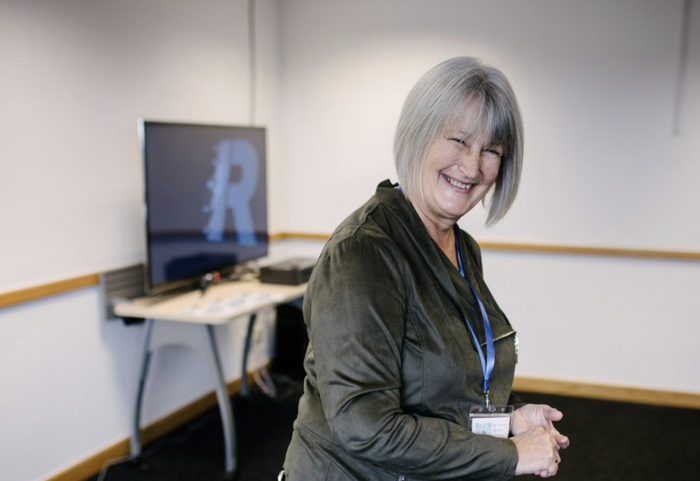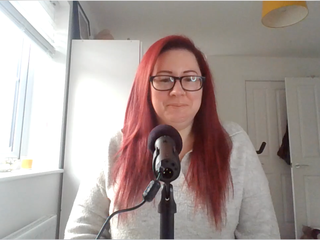Looking after myself, as well as my husband
Sylvia’s husband, Tony, was diagnosed with acute lymphoblastic leukaemia (ALL) when he was 63. Sylvia shares how she protects her own wellbeing while being a carer for Tony.

Sylvia’s husband, Tony, was diagnosed with acute lymphoblastic leukaemia (ALL) when he was 63.
When Tony had his initial diagnosis, we didn’t know what it meant. We were due to go on holiday to Portugal and the doctors said, ‘No you won’t be’. I thought, God – this is for real.
It was overwhelming, but the medical staff were fantastic. Gradually, it began to sink in – this was life-threatening. It wasn’t until they started pouring chemicals into him that it really hit home. I wanted to take it away and make it stop. It happens to other people – it doesn’t happen to you.
Getting support
To try and make sense of things, I joined an acute lymphoblastic leukaemia support group online. The blood cancer Tony has is very rare in an adult his age, and it helps to know you’re not the only one.
I also know a lady whose husband was going through treatment at the same time. She and I have been very supportive of each other. Every so often, we’ll have a good old moan about them. I find being able to share with someone who understands really does help me cope.
Over time, I’ve built support networks for myself. You just need to offload with people who understand. Everybody else asks, “How’s Tony? Fine? Oh, good.” That’s all they want to hear. Sometimes, you just need to let rip. My greatest ally is my best friend, Jeannie. We’ve been friends since school and she’s like a sister. I know I can offload without being judged – and that’s the other part of it.
Talking to anybody who doesn’t understand or isn’t in the loop, you feel you’re being judged because you’re taking your own selfish standpoint, even if that isn’t the case.
The whole situation is so overwhelming – especially when your loved one is going through so much.
Hobbies
I run the biggest patchwork and quilts website in the UK through my business. Being able to focus on work has helped me. When I’m sat sewing, I can’t think about anything else – I have to concentrate, and it empties my mind. If I stop, I start to think about everything… if it’s not work, it’s his illness.
Once a year, I go on a quilting retreat for four days. I have to make sure all his tablets are in place and the family support network’s there. They’ve got all the phone numbers and know to contact me immediately if anything happens. It takes a lot of planning, but it’s just a little time for me… and you need that to regenerate and keep going.
Accepting help
When Tony was first diagnosed, I was just so tired because I run my own business and had to continue working. I couldn’t let work down. So it was work, hospital – 40 minutes’ drive each way – bed, and then back to work. It started to really get me down. But he was suffering so much and needed me there to help him.
Thankfully, the family stepped in when they saw that happening. I felt guilty because I felt it was my place to be there, but they said, “Look, have a day off.” I am so thankful for having them there.
We also started a WhatsApp group, so I could update close family on Tony’s health. That worked well in the early days when he was going through treatment and saved me having to speak to as many as seven people about the same update, which is what was happening.
I live in a small village where everybody knows everybody. We get on with our own lives but when the chips are down, they’re absolutely amazing. I even had a casserole sat on my doorstep when I came home one day, which was quite wonderful. If they see an ambulance anywhere close, we’re the first door they check on.
Change in dynamics
Tony used to do most of the gardening, but now I do a lot of it when I can. I’m seeing somebody about coming in to do the heavier gardening, because he can’t and I’m getting to the point where it’s too much for me.
He did all the decorating, so we’ve had to start hiring people to do that. I can’t decorate to save my life – I put paint on upside down, according to him. Before we started shielding, I was on the edge of getting a cleaner, just for the heavier stuff, to give us a little bit more time. That’ll have to wait a bit.
It’s been hard for him to adjust, but I’ve introduced changes gradually to help him cope.
Staying close
Tony and I have a very close relationship and always have. We’re nearly 40 years married. But it changed overnight so suddenly. At times, I have had to go home to an empty house and an empty bed when Tony’s been in hospital. It’s just me and the cat (who hates me!).
I think it’s really important to be there for each other and listen. Sometimes, just sitting quietly together is all that’s needed. You don’t always have to fill the air with words. It’s just knowing somebody’s sat there. I used to visit him in hospital and we’d fall asleep together.
Building a new life together
My advice to others is be prepared for your life to change, but build a new life. Because of the possibility of infection, we weren’t going abroad any longer even before the pandemic. So we bought a little caravan near York that we go to when we can. We’ll get back there once it’s safe to go out.
We are finding new ways of doing things all the time and aim not to compare things to how we did them before, especially now that our world has temporarily shrunk to the space we live in. We’re making the best of it and making time for each other. Time is the important thing.

Blood Cancer Heart to Heart podcast for family and friends
"I thought this is it. I’ve driven here as your girlfriend, and I've left as a doctor, a pharmacist, a nurse, a carer - everything all rolled into one."
Janssen-Cilag Ltd has supported Blood Cancer UK with funding for the production of this web page and others within the ‘Living well’ section. It had no influence over the content.
